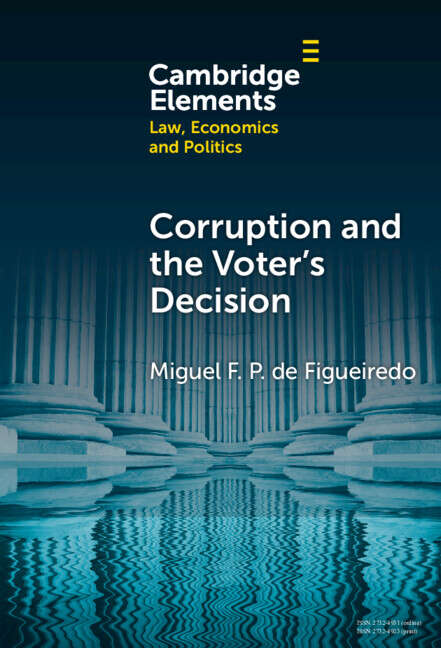Corruption and the Voter's Decision: Experimental Evidence from Brazil (Elements in Law, Economics and Politics)
By:
Sign Up Now!
Already a Member? Log In
You must be logged into Bookshare to access this title.
Learn about membership options,
or view our freely available titles.
- Synopsis
- Despite voters' distaste for corruption, corrupt politicians frequently get reelected. This Element provides a framework for understanding when corrupt politicians are reelected. One unexplored source of electoral accountability is court rulings on candidate malfeasance, which are increasingly determining politicians' electoral prospects. The findings suggest that (1) low-income voters – in contrast to higher-income voters – are responsive to such rulings. Unlike earlier studies, we explore multiple trade-offs voters weigh when confronting corrupt candidates, including the candidate's party, policy positions, and personal attributes. The results also surprisingly show (2) low-income voters, like higher-income voters, weigh corruption allegations and policy positions similarly, and are slightly more responsive to candidate attributes. Moreover, irrespective of voter income, (3) party labels insulate candidates from corruption, and (4) candidate attributes like gender have little effect. The results have implications for when voters punish corrupt politicians, the success of anti-corruption campaigns, and the design and legitimacy of electoral institutions.
- Copyright:
- 2024
Book Details
- Book Quality:
- Publisher Quality
- ISBN-13:
- 9781009499774
- Related ISBNs:
- 9781009499743, 9781009499743
- Publisher:
- Cambridge University Press
- Date of Addition:
- 03/25/25
- Copyrighted By:
- Miguel F. P. de Figueiredo
- Adult content:
- No
- Language:
- English
- Has Image Descriptions:
- No
- Categories:
- Nonfiction, Business and Finance, Politics and Government
- Submitted By:
- Bookshare Staff
- Usage Restrictions:
- This is a copyrighted book.
